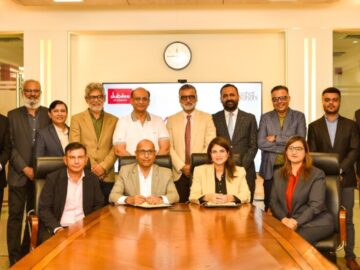IFC has welcomed Absa Bank Ltd. to its Global Trade Liquidity Program (GTLP) to boost access to trade finance in sub-Saharan Africa, especially in low income and fragile countries.
Through a combined investment of $250 million, IFC and Absa Bank, one of Africa’s largest financial institutions, will channel credit to a portfolio of trade transactions that is expected to facilitate up to $1.6 billion in trade over the next three years. The financing will support Absa’s commitment to increase the accessibility of trade finance, with around 80 percent of financing expected to go to low income and fragile countries.
Under the GTLP risk-sharing model, IFC will guarantee a pool of eligible trade transactions issued by Absa Bank by up to 50 percent, with the remaining amount being guaranteed by Absa Bank.
IFC’s GTLP program was established to provide financing to partner banks, helping them minimize risk in trade financing and facilitate increased trade in emerging markets, especially for underserved importers and exporters and small businesses.
Since its launch in 2009, the GTLP program has supported more than $75 billion in global trade volume via nearly 27,000 transactions, of which more than $24 billion has represented trade in low-income countries.
“Absa is delighted to announce the signing of a $250 million facility under IFC’s GTLP program,” said Bohani Hlungwane, Managing Principal – Head of Trade & Working Capital Sales (Pan Africa) at Absa. “This program builds on our existing relationship with IFC, further solidifying our commitment to providing access to trade finance and closing the trade finance gap on the African continent.”
“The partnership with Absa will play a key role in the response to and recovery from the COVID-19 pandemic by supporting trade finance that is essential for economic recovery and growth in sub-Saharan African markets,” said Manuel Reyes-Retana, IFC’s Regional Industry Director for the Financial Institutions Group in Africa. “GTLP provides much-needed trade financing, helping banks to increase their credit limits, manage risk and support small and medium sized businesses in challenging emerging markets.”











